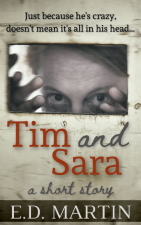I’m continuing with my notes from the writing workshop I attended over the weekend.
Part 1: The Fifth Dimension – Marketing
Part 2: Dipping Your Toe Into the ‘E’ Pool; E-Books 101
Part 3 (today): Get Into The House (Finding an agent)
Part 4: DIY Publishing – Is It For You?
Part 5: My own insights into marketing: social networking and blogging
Get Into The House (Finding an agent)
This session was led by Jon Ripslinger, author of half a dozen traditionally-published YA books: Triangle, Harcourt Brace, 1994; How I Fell in Love & Learned to Shoot Free Throws, Roaring Brook Press, 2003; Derailed, Llewellyn World Wide, 2006; and Last Kiss, Llewellyn World Wide, 2007; The Hustle, Ampichellis Ebooks, 2010; and Missing Pieces, (ebook and paperback) Ampichellis Ebooks, 2011. He’s been agented in the past, but is currently on the hunt again.
According to Jon (and most other sources I’ve seen), there are several steps to getting an agent.
1. Write a premise – one sentence that sums up your book. Also known as a logline or elevator pitch.
- Harry Potter: A boy discovers he has magical powers and attends a school for wizards.
- A Christmas Carol: When three ghosts visit a stingy old man, he regains the spirit of Christmas.
We then wrote the premise for our own stories. Here’s mine, for my NIP The Lone Wolf: A PTSD-stricken police officer, haunted by his role in the death of his stillborn son, seeks redemption through his relationship with a women struggling with the aftermath of her husband’s affair.
It’s wordy, but Jon said as a writer of women’s fiction (he writes for Women’s Day, I think), he’d definitely read my novel. Yay!
2. Write a brief synopsis – a short paragraph that summarizes your novel without giving away the ending, making it as enticing as possible. This will be your query.
3. Polish your first 50 pages. Most agents will ask for the first 10, or the first chapter or three, so you want them to be as pretty as possible. That’s not to say it’s fine for the rest of your novel to suck, because it’s not. But you want to make a good a first impression as possible.
4. Find an agent, and send them what they want. Agent Query and Query Tracker are great places to look.
5. Finally, get ready for rejection. Most will be form, something like this:
Dear Author,
Thank you so much for writing me about your project. I read and consider each query carefully and, while yours is not exactly what I am looking for, I would certainly encourage you to keep trying. I know your work is important to you and I am grateful that you wrote to me.
All the best,
Agent
If you’ve gotten an agent, did you follow these steps? If you’re looking for an agent, are you doing something different than these steps? Please, share your experiences!





